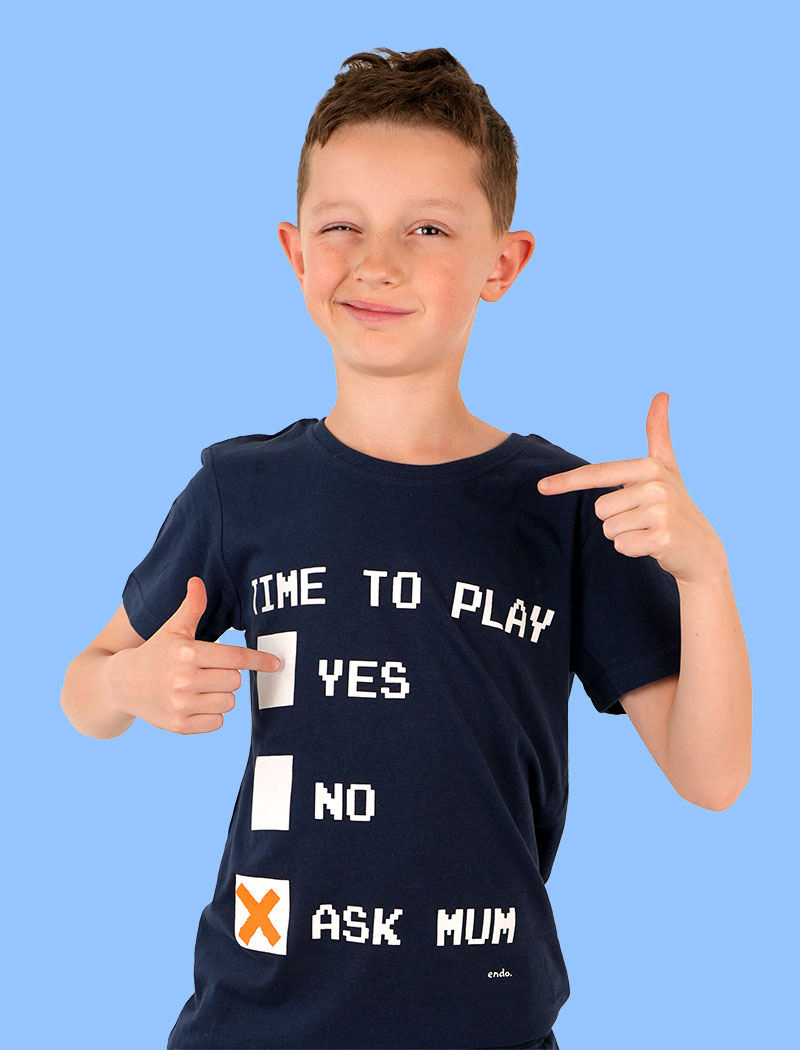
Nowadays, computer games are an integral part of childhood. They're attracting the attention of parents and experts who question their impact on young people. Learn about both the positive and negative aspects of computer games for children, their impact on child development, and tips for responsible use of this form of entertainment.
Computer games themselves aren't inherently bad; they're one of the most enjoyable forms of entertainment that can provide many benefits for children. However, one of the biggest concerns is the amount of time children and adolescents spend on computer games, which can lead to them neglecting other important aspects of their lives, such as learning or physical activity. Weigh the pros and cons and work with your child to establish healthy limits for computer gaming.
Benefits of computer games for children
Computer games offer children numerous benefits that support their intellectual, emotional, and social development. They improve cognitive skills such as concentration, memory, and reflexes, which aid both academics and everyday challenges. Logical and strategic games teach children critical thinking and problem-solving skills, which develops their creativity and imagination.
Collaboration in team games helps build social relationships, teaching empathy, communication, and teamwork . Furthermore, games can also serve an educational purpose, introducing children to the world of mathematics, foreign languages, and science in an accessible and interactive way.
Finally, gaming relieves stress and can be a safe way to express emotions . However, it's crucial to monitor the time spent gaming and select appropriate content for your child.

Development of cognitive skills
Computer games, especially educational ones, can support the development of cognitive skills in children . Logical games, puzzles, strategy games, and escape room games help develop problem-solving skills, which can be useful in everyday life and school. In games that require planning, children learn to anticipate the consequences of their actions and adapt their strategies.
Building a bond with a parent
A great way to introduce a child to the world of gaming is to play together, for example, in the world of Minecraft. This is not only a fun way to spend time, but also allows for shared in-game projects, such as building a base or embarking on a mission. This type of computer use has many benefits: it builds a bond between child and parent, teaches cooperation and compromise, and allows parents to control the time their child spends on the computer.
Strengthening reflexes and hand-eye coordination
Many computer games engage children in quick reactions to changing situations. This can improve reflexes and hand-eye coordination, which in turn can translate into skills useful beyond the digital world, such as in sports or team sports. Arcade games that require quick reactions can help improve mind-body synchronization.

Developing creativity and imagination
Open-world computer games like Minecraft provide a space for creativity and imagination. Children can build their own worlds, experiment, and shape spaces according to their own ideas. They also learn to plan and implement their own projects, which can be useful later in life. Many games also offer opportunities to explore the world of art, offering children a platform where they can become artists or designers, for example, by designing an outfit or a house for their character.
Learning to cooperate and communicate
Many computer games feature a multiplayer mode that encourages cooperation and communication between players. Team games require cooperation skills, which can positively impact a child's social relationships. Through cooperative gaming, children learn communication, group decision-making, and develop negotiation skills and empathy towards other players.
Learning English
Many games are available exclusively in English, which is also the most popular language among other players. This allows young players to naturally absorb the language by conversing with native speakers while playing.

The impact of computer games on children's health
The impact of computer games on children's health is complex and depends on how they are used. On the one hand, games can develop cognitive skills such as concentration, reflexes, and manual dexterity. On the other hand, excessive use can lead to health problems such as addiction, headaches, poor posture, and impaired vision. Parental control plays a key role in minimizing negative effects and enabling the enjoyment of computer games.
Psychological consequences are also significant – inappropriate content can trigger aggression or emotional problems such as anxiety or social isolation . It's worth noting that games can also support mental health by allowing children to relieve stress, provided they exercise moderation and choose appropriate content. Many games are currently being developed that are intended to be relaxing and bring harmony to everyday life. Some games are also designed to help players cope with stress and other more serious emotional issues – it's worth checking these games beforehand to determine their recommended age.

Potential risks to physical health
One of the main risks associated with video games is physical inactivity. Prolonged screen time can lead to health problems such as back pain, weight gain, and vision impairment. Children who spend too much time playing video games are more likely to develop health problems related to lack of exercise, which can have long-term consequences.
The impact of games on mental health
Some games can impact children's mental health, especially when exposed to violent or graphic content. Research shows that excessive aggression in games can lead to increased aggression in younger players , which can negatively impact their behavior. Furthermore, competitive games can contribute to stress and frustration, especially if children struggle to cope with defeat. Always ensure your child is playing age-appropriate games. Unfortunately, many games have childish and colorful graphics, but they actually contain horror elements, so any game should be approached with caution.
Risk of addiction to computer games
Addiction to computer games is a real threat that can negatively impact a child's life. Addiction can lead to social isolation, neglect of schoolwork, and problems with family relationships. It's important for parents to monitor their child's computer time and avoid situations where gaming becomes their primary source of activity.

How to use computer games responsibly?
Responsible gaming is based on several principles. Setting limits on screen time is crucial to avoid health problems like eyestrain and concentration problems. Choosing games that are age-appropriate for children and monitoring their content helps prevent exposure to violence or other harmful elements. Parents should also talk to their children about their gaming experiences and engage with their interests, which builds trust and provides opportunities for shared time.
Establishing rules and time limits
Parents should establish rules for computer gaming and set time limits for their children. Experts recommend that school-aged children spend a maximum of 1-2 hours per day on the computer. Setting time limits can help prevent addiction and ensure children have time for other, equally important activities.

Choosing age-appropriate games
An important element of responsible gaming is choosing games that are appropriate for a child's age and developmental level. When choosing a game, it's worth paying attention to the PEGI rating, which indicates the appropriate age group for the game and informs about the potential presence of violence, profanity, or other content that may negatively impact children.
Encouraging off-screen activity
Parents should encourage children to engage in off-screen activities, such as sports, reading, and crafts. Organizing outdoor activities or spending time with family and friends can help maintain a balance between the digital and real worlds, which is crucial for a child's healthy development.

What computer games are best for children?
The best computer games for children are those that combine fun with learning . Educational games support the development of logical thinking, creativity, and knowledge, such as math or language games. Collaborative games, such as multiplayer games, develop social skills and empathy. It's important that games are free of violence and their content is age-appropriate, which can be verified using PEGI ratings.
Educational games for children
Educational games can be a great choice, especially for younger children. These games teach through play, developing a variety of skills—from logical thinking and math to language development.
Games that develop imagination
For older children, games that foster imagination and creativity are a good choice. Minecraft, an open-world game, allows children to build and explore a virtual world, providing opportunities for creative expression. These types of games not only foster creativity but also teach resource management and problem-solving.
Adventure and logic games
Adventure and logic games develop analytical thinking and decision-making skills. Games like "Hogwarts Legacy" encourage children to solve puzzles and explore the world around them. These games teach them strategic thinking and creative problem-solving.
Are computer games for children a good choice?
Computer games for children can be both a source of entertainment and a tool for development. They have their advantages, such as supporting the development of cognitive and social skills, but they also carry risks, including the risk of addiction and health problems resulting from prolonged computer use. A responsible parental approach, selecting appropriate games, and monitoring computer time can make gaming a valuable part of a child's development.





Podziel się:
How to Make a Halloween Pumpkin? The Complete Guide for Kids and Parents
Cat or dog – a friend for a child? Which pet should you choose?